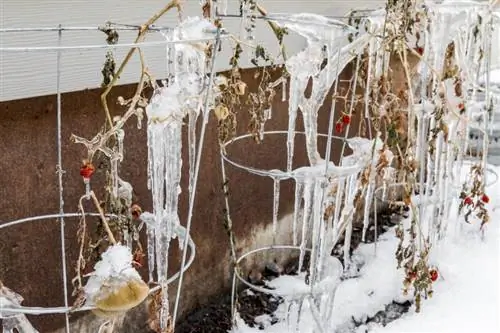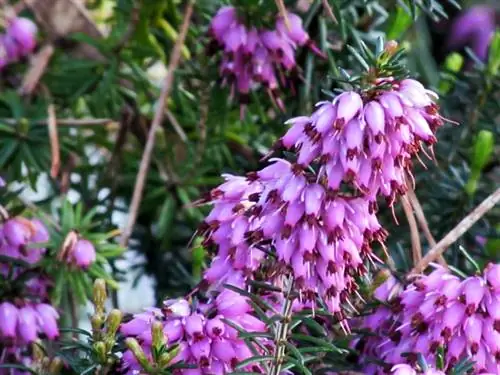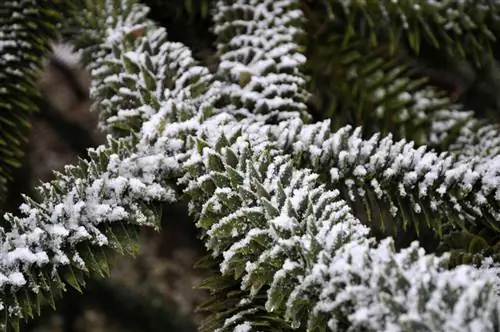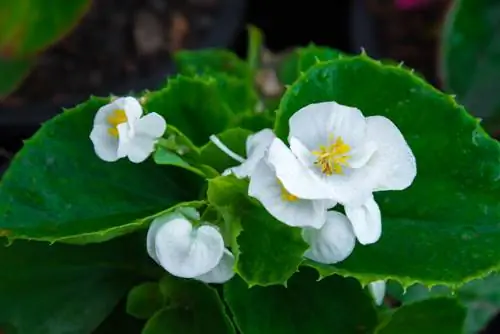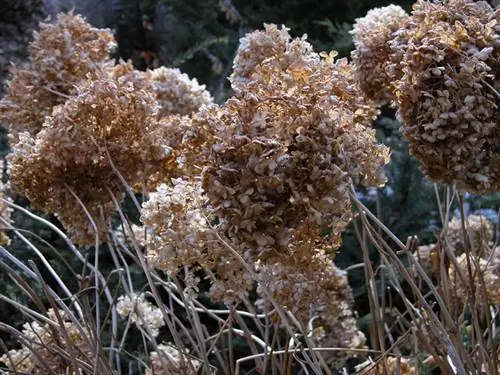- Author admin [email protected].
- Public 2023-12-16 16:46.
- Last modified 2025-01-23 11:20.
Autumn time means preparation time. Now it's time to winterize the plants outside so that they don't freeze due to ice and snow. What about asters? How do they overwinter?

How to get asters over the winter?
In order for asters to overwinter successfully, they should be covered with materials such as compost, bark mulch, leaves, brushwood or pine branches. Asters in pots should be placed on a protected house wall and the root area should be wrapped with a jute sack or fleece.
Few varieties are sensitive to frost
Most types of asters are sufficiently hardy - often even down to -45 °C in protected locations. However, some specimens such as chrysanthemums, which also belong to the asters, are more sensitive and should therefore be provided with a protective layer in the root area when outdoors in late autumn.
Suitable materials for outdoor wintering
The following materials, for example, are suitable as winter protection for asters if they are applied in a thick layer over the root area:
- Compost,
- Bark mulch,
- Leaves
- brushwood
- Fir branches
- Spruce branches
- Straw
- Hay
Overwintering asters in pots outside
Is your potted aster on the balcony or terrace, for example? Then you should definitely not put them in a warm house in winter. A sheltered house wall is a suitable location for the winter. It is also recommended to cover the root area/pot with a jute bag (€16.00 on Amazon) or fleece.
If the aster is protected from rain, it needs to be watered lightly from time to time. The emphasis is on easy. Water only enough so that the soil does not dry out but remains fresh. You should avoid fertilizing completely. In spring, simply cut down the old parts of the plant.
Tip
The shoots themselves offer the aster the best winter protection. They protect you from severe frost and winter wetness. So don't cut them off until spring!


